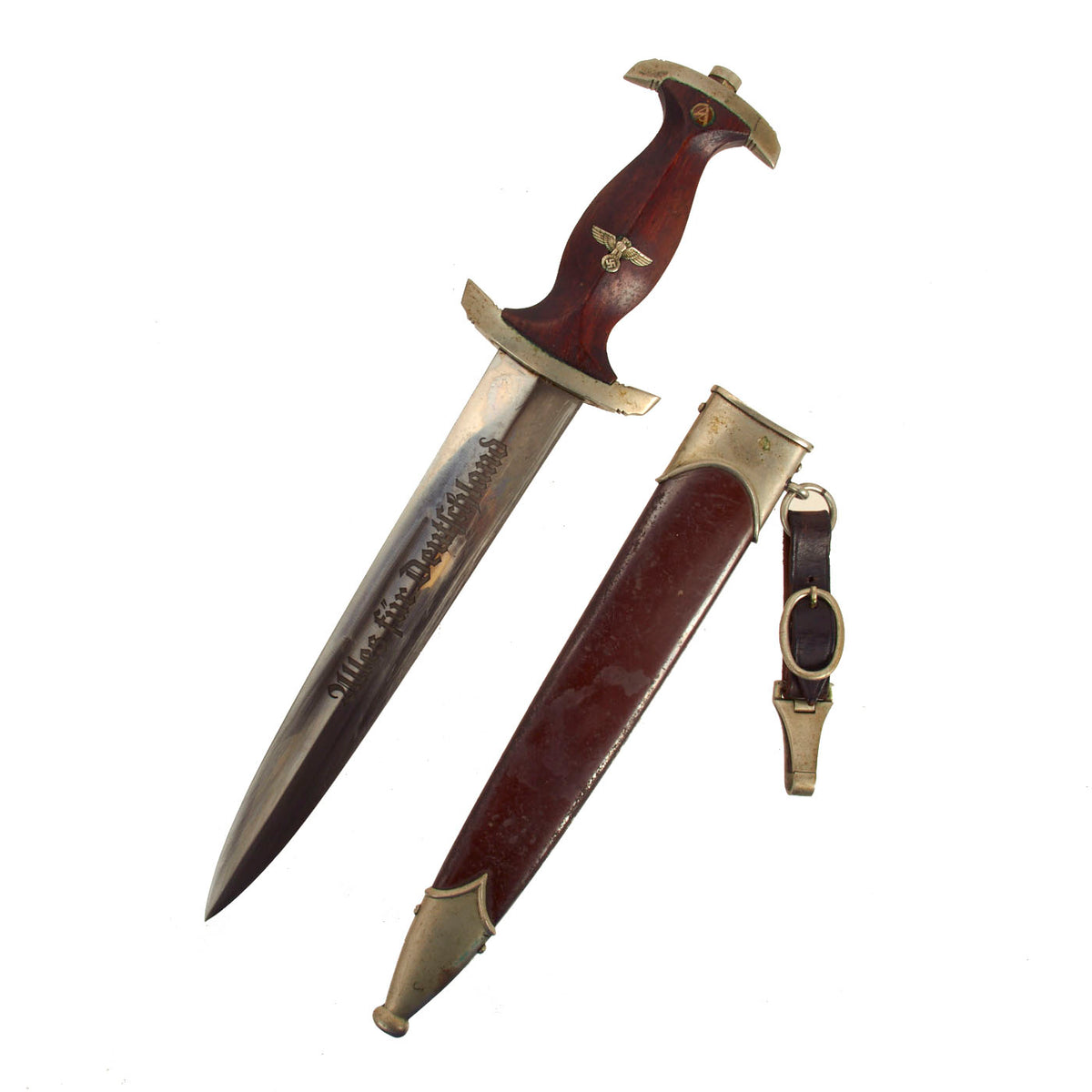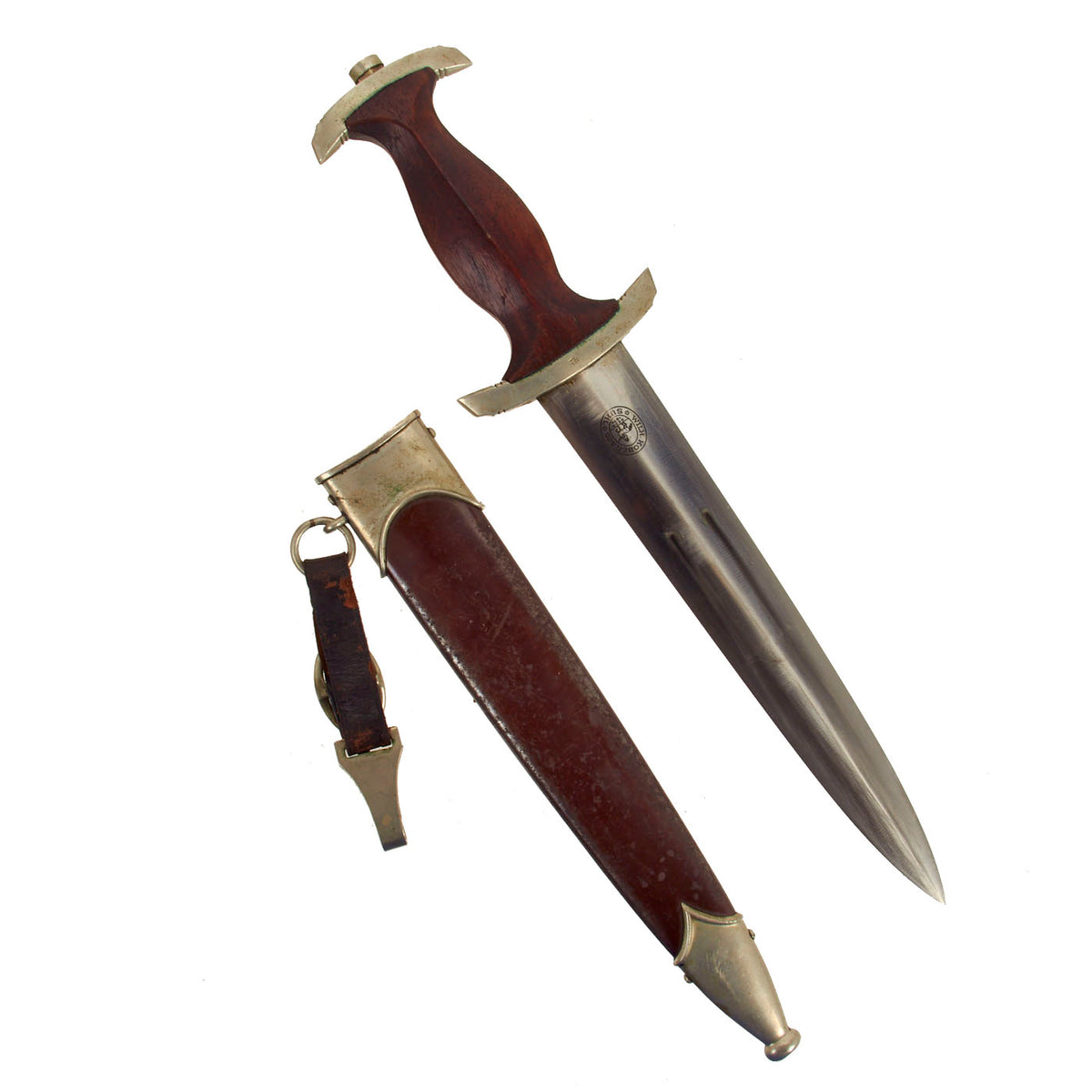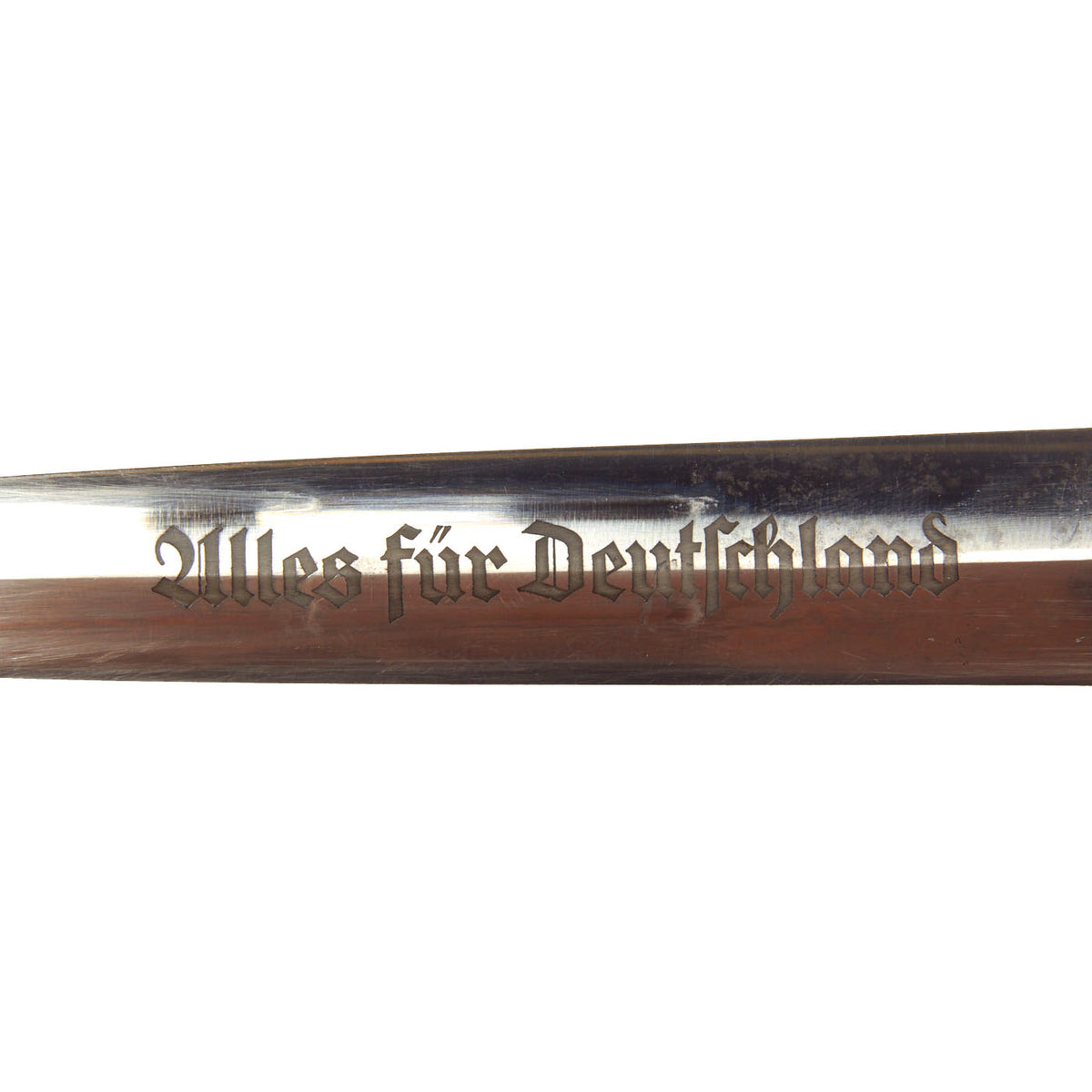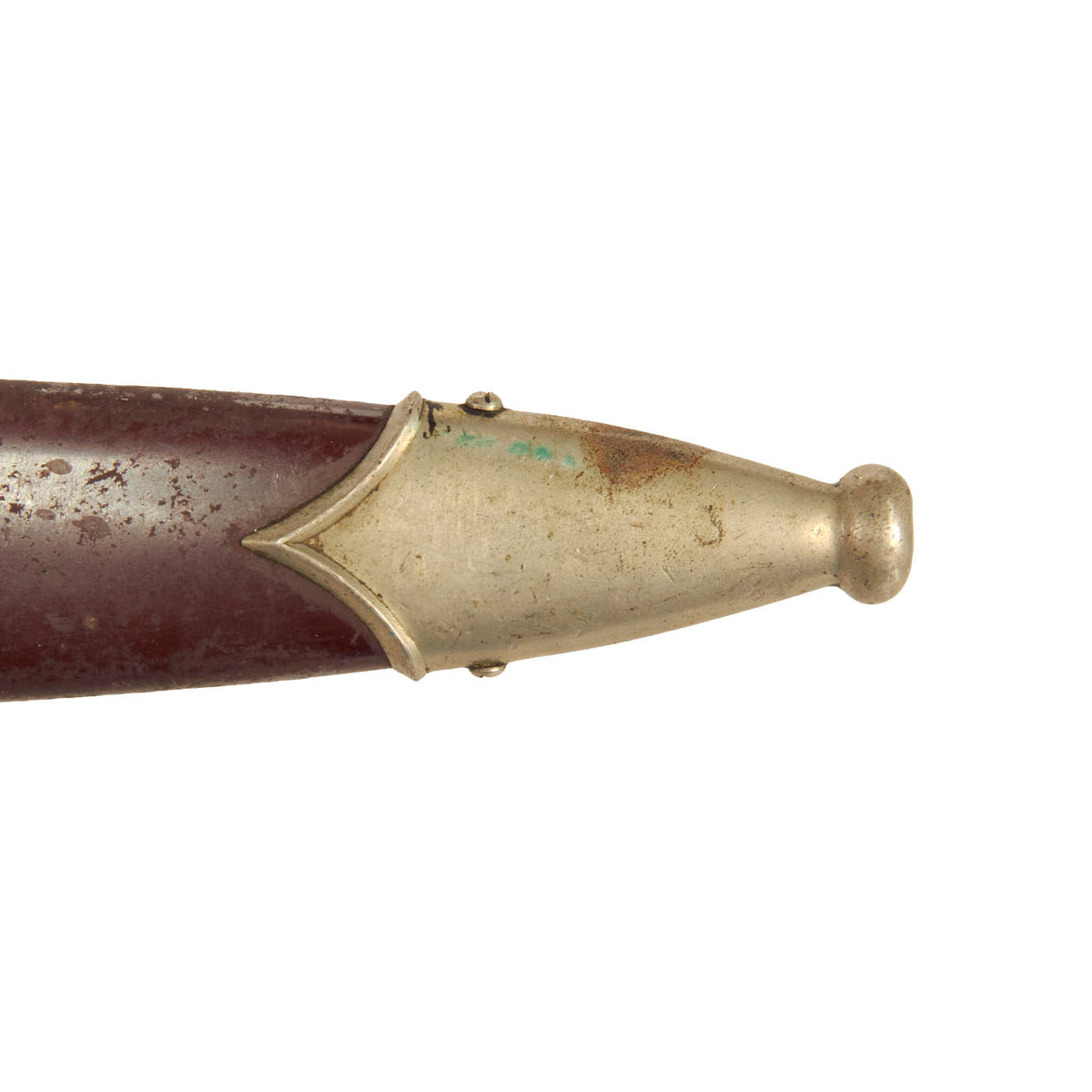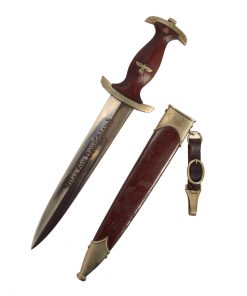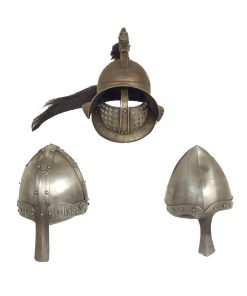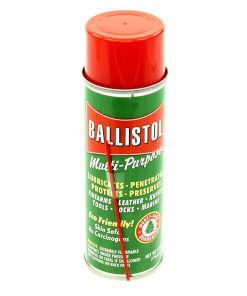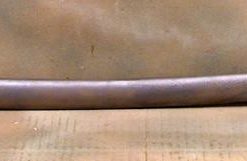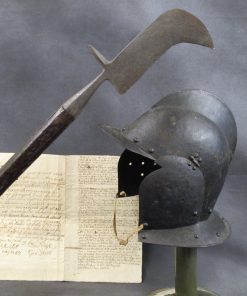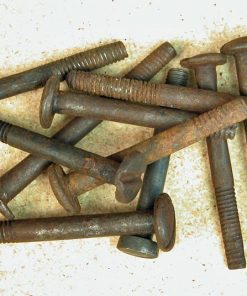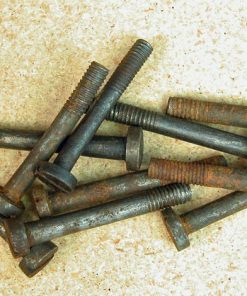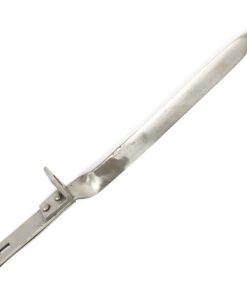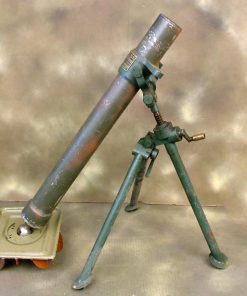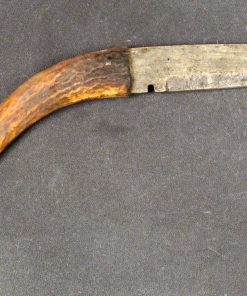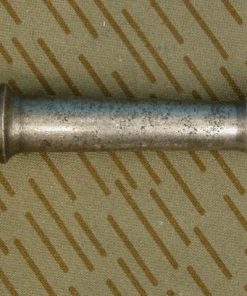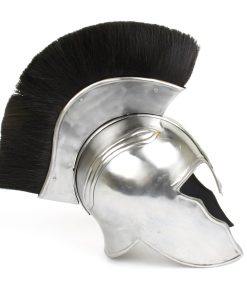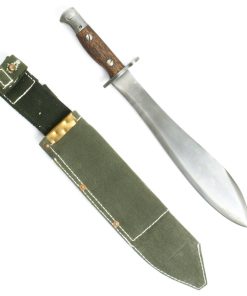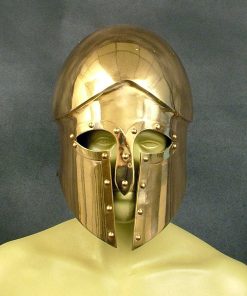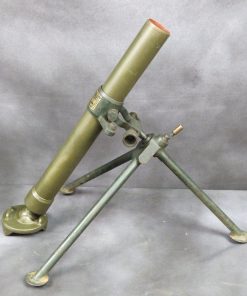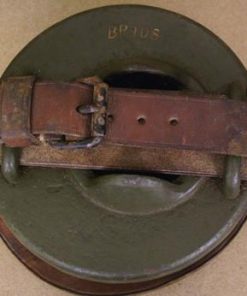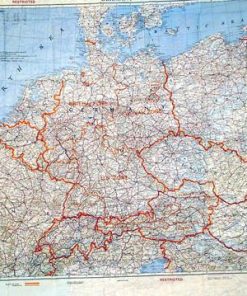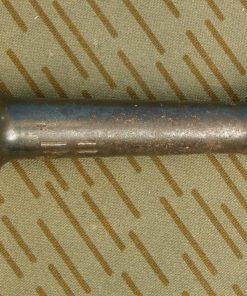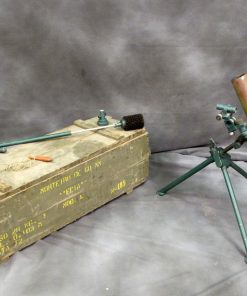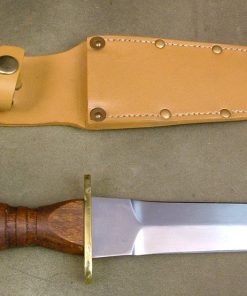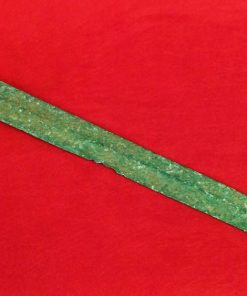Original German Early WWII SA Dagger by Rare Maker Wilhelm Kober of Suhl with Scabbard & Hanger Original Items
$ 1.395,00 $ 348,75
Original Item: Only One Available. This is an very good condition early pattern SA Dagger, made by the very seldom seen firm of Wilhelm Kober & Co., based in Suhl, Germany. This maker is EXTREMELY rare to find, and this is only the fourth edged weapon of any type we have had by this firm. This company had made SA daggers since the Röhm era, but only made them in limited numbers throughout the war. It comes comes compete with an original scabbard, which is the correct early war pattern, and has a very nice belt hanger attached.
The dagger has solid nickel silver fittings throughout, and is a very nice example. The crossguards and tang nut are in very good condition throughout with all fittings having a nice lightly aged patina. There is some age to these mounts but there is no lifting anywhere, showing that they are solid and not plated. They show only light wear with almost no denting or scratches. There is some verdigris buildup near the fittings, caused by the metal reacting with the wood. The lower reverse guard is Gruppe/Gau marked Th, for Thuringen (Thuringia), a district in central Germany, with the principal cities being Weimar and Erfurt.
The grip is a fine product having a lovely dark reddish brown color, with medium center ridge construction, with just a bit of wear and a few small dents. The grain is lovely on this example, with some lovely color variation. This grip is in good condition and fits the crossguards nicely, and we do not see any cracks near either guard. The pommel nut shows no turning, and there is no movement in the hilt fittings.
The SA symbol button is still nicely set, and still has most of the translucent enamel intact, with the nickel plating partly worn away and patinated. The grip eagle is a fine example being the style with beak that points straight. It has just a bit of verdigris on it, showing that it is solid nickel alloy, and it has patinated nicely. The details are still there to the eagle to include the beak, breast feathering, wing feathering, talons, wreath and mobile swas (hook cross).
The blade is in fantastic condition, showing virtually all of the original factory final grind cross grain on both sides. This texture is iconic, and is the definitive identifying characteristic for a real WWII German Blade. There are a few areas of very light staining on both sides, and there is also very light runner wear, as with virtually all original German daggers. The acid-etched Alles für Deutschland (Everything for Germany) SA motto is crisp, with the factory darkening retained almost completely.
This fine example was produced by Wilhelm Kober & Co., a known Suhl-based producer of this knife during the pre-WWII period. The rear of the dagger is marked with the trademark “Centaur with a fore-leg raised, brandishing a gun” logo, surrounded with a double oval:
WILH. KOBER & CO.
(Centaur Logo)
GEGR.
1874
SUHL
The “GEGR.” is short for Gegründet, or founded, as this company was founded in 1874, and according to the DRABS for 1900-1925 was mainly a maker of mechanical hair clippers. They made some attempts to diversify into small electric motors, and only “a few early type SA and NSKK daggers were made during the Third Reich” per J. Anthony Carter’s GERMAN KNIFE AND SWORD MAKERS. All of them were marked with this trademark, which was used specifically on these knives. Knives by this maker are extremely rare.
The scabbard shell is mostly straight throughout and is the early-war style, which were produced with a brown “anodized” finish on the steel, which was then lacquered. There are a few dents, however it still retains much of the original finish, with about 80% of the lacquer still remaining. The upper and lower fittings are solid nickel silver, with a great look and some dents and scratches showing typical wear. The chape is lightly dented at the end, though not split, as the nickel alloy is somewhat soft, a common thing to see. The throat nicely matches the crossguards, and all fittings have their original dome headed screws, which do not show any signs of turning.
Attached to the hanger ring on the scabbard is a very nice early pattern leather belt hanger, with non magnetic solid nickel hardware. There are no markings on the clip, but it definitely is the correct early pattern, with the only steel component being the spring for the clip.
A very nice early war SA dagger from a very rare maker, complete with a very good original scabbard & belt hanger. Ready to display!
Specifications:
Blade Length: 8 3/4″
Overall length: 13 3/4”
Crossguard: 3”
Scabbard Length: 10”
History of the SA-
The SA or Brown Shirts, were a private political formation which Adolf AH and the NSDAP used to maintain order at organized Party meetings and demonstrations. The group was formed in 1921, and grew to a huge force of nearly 3,000,000 men by the later 1930’s. To instill esprit de corps, as well as create employment for the Blade City of Solingen, it was decided each SA man would carry a dagger with his Brown Shirt uniform. Huge quantities needed to be produced to accommodate the demand. The dagger initially was produced of hand-fitted nickel mounts with attractive finished wood grip and brown anodized (a bluing process) finished scabbard.
The blade was etched with the SA motto, Alles für Deutschland. Examples produced prior to 1935 were stamped with the German sector of the SA group on reverse lower crossguard. Later examples underwent standardization through the RZM ministry. These pieces were produced of cheaper plated zinc-base fittings and scabbards were simply painted brown.
Prior to his “unmasking” as a traitor, Ernst Röhm was the leader of the SA. In 1934, he distributed approximately 100,000 SA daggers with his personal inscription on the reverse blade. These daggers were to honor individuals who had served with the SA prior to December, 1931. Other than the inscription, these pieces were identical to the standard M1933 SA dagger. After the Röhm purge, the inscription was ordered to be removed. Many examples were returned to the factory for grinding. Others were simply ground in the field by whatever means were available. Examples will occasionally be encountered with remnants of the original inscription remaining on the blade, but mostly none will remain. Some blades exist with an intact inscription, reflecting only the removal of the Röhm signature. Very very rarely is an example seen with a full, untouched inscription, as the holder would have surely risked a charge of treason.
Fast Shipping with Professional Packaging
Thanks to our longstanding association with UPS FedEx DHL, and other major international carriers, we are able to provide a range of shipping options. Our warehouse staff is expertly trained and will wrap your products according to our exact and precise specifications. Prior to shipping, your goods will be thoroughly examined and securely secured. We ship to thousands clients each day across multiple countries. This shows how we're dedicated to be the largest retailer on the internet. Warehouses and distribution centres can be located throughout Europe as well as the USA.
Note: Orders with more than one item will be assigned a processing date depending on the item.
Before shipping before shipping, we'll conduct a thorough inspection of the items you have ordered. Today, the majority of orders will be delivered within 48 hours. The delivery time will be between 3-7 days.
Returns
The stock is dynamic and we cannot completely manage it because multiple stakeholders are involved, including our factory and warehouse. So the actual stock may alter at any time. It's possible that you may not receive your order once the order has been made.
Our policy is valid for a period of 30 days. If you don't receive the product within 30 days, we are not able to issue a refund or an exchange.
You can only return an item if it is unused and in the same state as the day you received it. You must have the item in its original packaging.
Related products
Uncategorized
Australian WWII Owen MK1 Machine Carbine SMG Custom Fabricated Replica with Sling Original Items
Uncategorized
Armoured Fighting Vehicles of the World: AFVs of World War One (Hardcover Book) New Made Items
Uncategorized
Uncategorized
Uncategorized
Armored Burgonet Helmet & Polearm from Scottish Castle Leith Hall Circa 1700 Original Items
Uncategorized
Uncategorized
Uncategorized
Uncategorized
Uncategorized
Uncategorized
Uncategorized
Uncategorized
Uncategorized
Uncategorized
Uncategorized
Angolan Rebel 1970s era 60mm Inert Display Mortar from Angolan Civil War Original Items
Uncategorized
Uncategorized
Uncategorized
Uncategorized
Uncategorized
